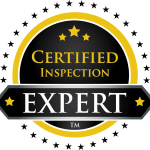When renting a home, there are a lot of things a renter thinks about. What school are they zoned for? Is it a good location? How far to the grocery store? One of the things we might not think about is if there is mold in the home. Can I sue my landlord for mold? The landlord needs to take steps to rid the home of the mold. In order to sue, that depends on your state.
Where Does Mold Come From?
Mold can come from various sources, such as moisture, humidity, and inadequate ventilation in a property. It thrives in damp or wet environments, making bathrooms, basements, and areas with water leaks susceptible to mold growth.

What Is The Difference Between Regular Mold And Black Mold?
While all molds have the potential to cause health issues, black mold (Stachybotrys chartarum) is a particularly concerning type. Black mold produces mycotoxins that can lead to severe respiratory problems and other health complications. It is important to address any type of mold growth promptly and take appropriate precautions.

Symptoms of Exposure to Mold
If you experience symptoms like nasal congestion, coughing, wheezing, eye irritation, or skin rashes that worsen when you are indoors or in specific areas of your rental property, it could be a sign of mold exposure. Consulting a medical professional can help determine if mold is the underlying cause.
I Told My Landlord: Is He Responsible For Getting The Mold Out?
In general, landlords are responsible for maintaining a safe and habitable living environment. This includes addressing mold issues that may arise due to property conditions. However, the specifics may vary depending on state and local laws, lease agreements, and the cause of the mold growth.
When Is The Landlord Responsible For Removing Mold?
Landlords are typically responsible for mold removal when the mold growth is a result of property defects or maintenance issues. It is crucial to report any visible signs of mold to your landlord as soon as possible. They should assess the situation and take appropriate measures to remediate the mold problem.
Can I Sue My Landlord?
If your landlord fails to address a mold issue after being notified, you may have legal options. It is advisable to consult with a lawyer who specializes in landlord-tenant disputes to understand your rights and determine the best course of action. Also, if your landlord refuses or neglects to remove mold, you may be able to take legal action. Contacting local housing authorities or seeking legal advice can help you navigate the appropriate steps to resolve the issue.
Other Recommended Maintenance
Now that you know about mold and the responsibility of the landlord, there are a few other areas of maintenance. One of those is black mold in the shower. If you find this on the silicone in the shower, you can use vinegar to try to wipe it off.
Another area is what black mold smells like. You might not know what it smells like, but it is similar to a pile of dirt with a rusty and earthy smell.
Lastly, when you have a home inspection, mold can come up on the report. Home inspectors do a visual check and some actually do a sampling of the mold.
When Do I Call A Professional?
It is recommended to call a professional mold remediation company if you are dealing with extensive mold growth or if you have underlying health issues that make it unsafe for you to handle the removal process yourself. Professionals have the expertise and appropriate equipment to effectively address the mold problem.
Conclusion
Mold growth in rental properties can pose health risks and should be taken seriously. While landlords generally have a responsibility to remediate mold issues, there may be variations in laws and circumstances. Seeking professional help and understanding your rights can ensure a safe living environment. Call on House Inspection Associates to conduct mold testing during a full home inspection in the Virginia, D.C., and Maryland areas.


